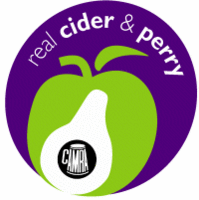 1. The apples are washed and checked for rot or mould. Apple which are rotting should be discarded.
1. The apples are washed and checked for rot or mould. Apple which are rotting should be discarded. 2. The apples are crushed in a machine called a scratter which chops them up into small pieces. They are now called pulp.
3. The pulp is placed in layers on a press and then the juice is extracted.
4. If a traditional screw or hydraulic press is used the pulp is wrapped in fine mesh cloths, like parcels, and about eight of these are used to make one pressing - called a cheese.
The natural yeasts in the apples start the fermentation and several months later you have cider.
Chaptalising
A number of the larger producers will add sugar at the fermentation stage, enabling the cider to reach 12-14%abv, and then it is diluted down before it is sold (the legal limit for cider is 8.5%abv). See definition to clarify acceptability of this practise by CAMRA (section A3).
Apples
The apples which are used in The West Country & other certain parts of the country are cider apples, which are grown specifically for the purpose of making cider. Cider apples are generically identified as bittersweets and bittersharps.
With most ciders the greater the variety of apples used, the better as they all have different characteristics. In recent years a number of Producers have starting making cider and perry from single varieties of fruit; these produce an interesting & sometimes surprising result from a tasting point of view.
Local Variations
In Somerset and other areas in the West Country, layers of straw were used instead of cloths. Some producers still use this method.
In Herefordshire it was the tradition to use horsehair, but there are no known producers who still do this in Herefordshire.
In the Eastern Counties - Sussex up to Norfolk (& including Kent) - the tradition for cider is to use a mixture of eating and cooking apples, although a number of producers in Norfolk are growing cider apples as well.
(c) CAMRA, The Campaign for Real Ale.
No comments:
Post a Comment